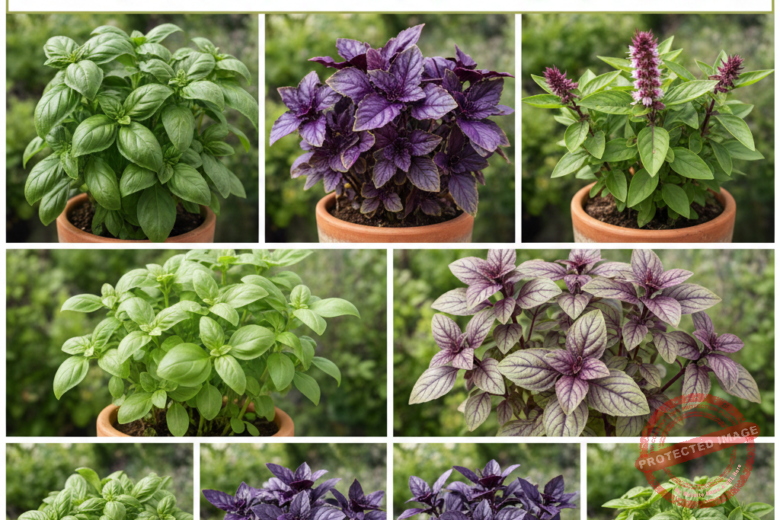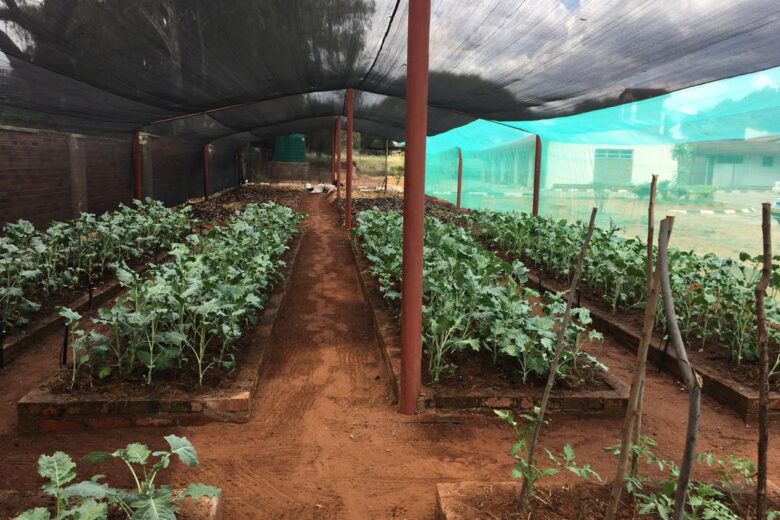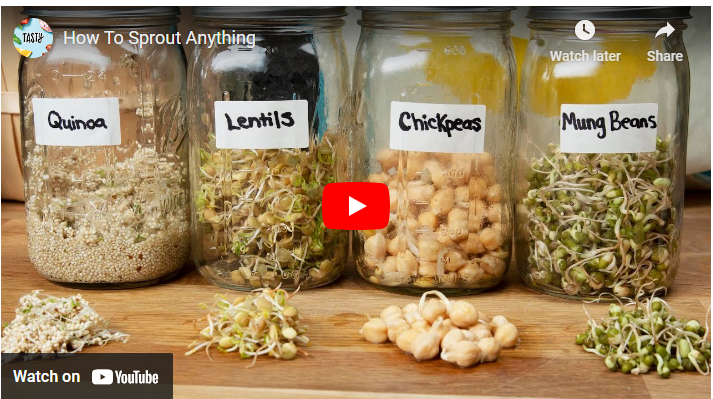Michigan, known as the Great Lakes State, boasts a thriving agricultural industry with fertile soil and favorable climatic conditions. Among the various agricultural ventures, cultivating profitable crops has become a significant focus for farmers in Michigan.
With its diverse landscape and agricultural potential, the state offers a range of lucrative crop options. From field crops to fruits, vegetables, and specialty crops, Michigan presents opportunities for farmers to maximize their profits.
In this article, we explore the twelve most profitable crops in Michigan, highlighting their economic value, market demand, and the factors that contribute to their success in the state’s agricultural landscape.
12 Most Profitable Crops In Michigan
Michigan, blessed with rich soils and a conducive climate, has established itself as a prominent agricultural region in the United States.
Its diverse landscape and favorable conditions offer an ideal environment for cultivating profitable crops.
Michigan’s agricultural industry thrives with a wide range of crops that contribute to its economic prosperity.
From field crops to specialty fruits, vegetables, and grains, the state offers ample opportunities for farmers to achieve profitability. Below are the 12 most lucrative crops in Michigan.
- sugarbeets
- Dry beans
- Corn
- Apple
- Cucumber
- Wheat
- Soybeans
- Barely
- Pumpkin
- Cabbage
- Grape
- Onions
- Squash
- Oats
#1. Corn
Corn is a valuable and profitable crop in Michigan due to its versatile uses and high demand. It is primarily cultivated for animal feed and ethanol production.
Michigan ranks among the top states in corn production, contributing significantly to the agricultural economy.
#2. Apple
Apples are a prized and lucrative crop in Michigan, with the state being a major global producer.
Michigan’s favorable climate and fertile soil create ideal conditions for growing a wide variety of apples.
These apples are used in various food products, including juices, sauces, and baked goods, making them a versatile and sought-after crop.
#3. Cucumber
Cucumbers are a profitable crop in Michigan, serving both the fresh market and processing industry.
Michigan’s suitable climate allows for successful cucumber cultivation, meeting the demand for fresh consumption and pickling purposes.
#4. Wheat
Wheat production in Michigan is economically viable and in high demand. The state cultivates both soft and hard wheat varieties, which are used for various food products, including bread, pastries, and pasta.
#5. Soybeans
Soybeans are a valuable and profitable crop in Michigan, contributing to the state’s agricultural success. Soybeans serve as a vital source of protein for animal feed, as well as for oil production and other industrial applications.
#6. Barely
Barley cultivation is gaining prominence in Michigan, driven by the demand from the craft brewing industry.
The state’s favorable climate and fertile soils make it a profitable crop. Barley is used as a key ingredient in beer production, supporting the thriving craft brewing sector.
#7. Pumpkin
Pumpkins are a highly profitable crop in Michigan, particularly during the fall season. The state’s fertile soil and suitable climate allow for successful pumpkin cultivation.
Pumpkins are widely used for ornamental purposes, as well as in various food products such as pies, canned pumpkin, and seasonal decorations.
#8. Cabbage
Cabbage is a profitable crop in Michigan, meeting the demand for both the fresh market and processing industry.
The state’s cooler climate allows for successful cabbage cultivation, contributing to the supply of coleslaw, sauerkraut, and other processed cabbage products.
#9. Grape
Grapes are a valuable and profitable crop in Michigan, known for their use in winemaking and juice production.
Michigan’s unique climate, influenced by the Great Lakes, provides ideal conditions for growing high-quality grapes, making the state a prominent player in the wine industry.
#10. Onions
Onions are a lucrative crop in Michigan, serving the fresh market and various culinary applications.
Michigan’s suitable growing conditions allow for successful onion cultivation, meeting the demand for fresh onions, processed onion products, and culinary uses.
#11. Squash
Squash cultivation is profitable in Michigan due to the state’s fertile soils and suitable climate. Michigan farmers grow a variety of squash, including butternut, acorn, and spaghetti squash.
These are used for both fresh consumption and processing into various food products.
#12. Oats
Oats are a profitable crop in Michigan, fulfilling the demand for breakfast cereals, oatmeal, and animal feed.
The state’s climate and fertile soils provide optimal conditions for oat cultivation, contributing to the agricultural and food processing sectors.
Cultivation Techniques for Profitable Crops in Michigan
- Crop Rotation: Implementing crop rotation practices helps reduce disease and pest pressure, optimize nutrient utilization, and maintain soil health. Farmers in Michigan often rotate crops like corn, soybeans, wheat, and cover crops to enhance productivity.
- Irrigation Management: Efficient irrigation systems and proper water management techniques are essential for crop success. Farmers utilize techniques such as drip irrigation, precision sprinklers, and soil moisture monitoring to optimize water usage and minimize water stress.
- Integrated Pest Management (IPM): Implementing IPM practices involves using a combination of cultural, biological, and chemical control methods to manage pests effectively. This approach reduces reliance on pesticides and promotes sustainable pest management.
- Soil Health Management: Farmers prioritize soil health by adopting practices like cover cropping, conservation tillage, and organic matter additions. These techniques enhance soil structure, fertility, and water-holding capacity, leading to improved crop growth and yield.
Best Practices for Profitable Crops in Michigan
- Timely Planting: Adhering to recommended planting schedules ensures crops have optimal growing conditions, reducing the risk of yield loss due to unfavorable weather conditions or diseases.
- Nutrient Management: Proper soil nutrient management through soil testing and targeted fertilization helps meet crop requirements and maximize yield potential. Following nutrient management plans and utilizing organic amendments contribute to sustainable crop production.
- Weed Control: Employing effective weed control measures, such as pre-emergence herbicide applications, timely cultivation, and mulching, helps prevent weed competition and ensures crop growth and development.
- Disease and Pest Monitoring: Regular scouting and monitoring for diseases and pests enable early detection and prompt intervention. Integrated pest management strategies, including biological controls and targeted pesticide applications, help mitigate potential yield losses.
Risk Management Strategies for Michigan Crop Farming
- Crop Insurance: Crop insurance programs provide financial protection against yield loss due to natural disasters, adverse weather, and other unforeseen circumstances, safeguarding farmers’ investments.
- Diversification: Spreading the risk by diversifying the crop portfolio reduces vulnerability to market fluctuations, climate variability, and pest or disease outbreaks.
- Marketing Strategies: Developing effective marketing strategies, such as identifying target markets, establishing contracts with buyers, and exploring value-added opportunities, can help manage price volatility and ensure profitability.
Market Demand of these Profitable Crops in Michigan
Michigan’s profitable crops benefit from strong market demand, both within the state and beyond.
Consumers, food processors, and the brewing and wine industries drive the demand for apples, pumpkins, grapes, onions, and barley.
The livestock industry and biofuel sector contribute to the demand for corn, soybeans, and wheat.
Factors That Contribute to the Success of these Profitable Crops in Michigan
- Favorable Climate: Michigan’s climate, with moderate temperatures, adequate rainfall, and proximity to the Great Lakes, creates conducive conditions for crop production.
- Rich Soil: The state’s fertile soils, including loam and sandy loam, provide a nutrient-rich foundation for robust crop growth.
- Agricultural Research and Extension Services: Michigan benefits from research institutions and cooperative extension services that provide farmers with valuable information, resources, and innovative practices to optimize crop production.
Economic Significance of these Profitable Crops in Michigan
These profitable crops play a vital role in Michigan’s agricultural economy, contributing to job creation, rural development, and economic growth.
They generate revenue through local sales, export opportunities, and value-added products, while also supporting associated industries, such as food processing, manufacturing, and tourism.
The economic significance extends to supporting farm livelihoods, agribusinesses, and the overall stability of the state’s agricultural sector.
Most Profitable Crops in Michigan
Some of the most profitable crops in Michigan include corn, soybeans, apples, cucumbers, wheat, grapes, pumpkins, onions, cabbage, and more. These crops are in high demand and offer good market value.
Best Crop to Grow on 5 Acres
The best crop to grow on 5 acres depends on various factors such as soil type, climate, market demand, and personal preferences.
However, some suitable options for small-scale farming on 5 acres include high-value vegetables, herbs, flowers, berries, or specialty crops that have good market demand and profitability.
Best Crops for Beginning Farmers
For beginning farmers, it’s essential to choose crops that are relatively easy to grow, have a consistent market demand, and require manageable investment and labor.
Some suitable crops for beginning farmers include tomatoes, lettuce, peppers, herbs, pumpkins, beans, and berries.
High-Value Crops
High-value crops are those that have a higher market price per unit and offer good profit margins.
Examples of high-value crops include specialty vegetables, gourmet herbs, microgreens, mushrooms, exotic fruits, cut flowers, and organic produce.
These crops often cater to niche markets and have a strong demand from consumers seeking unique and high-quality products.
Michigan Crops by County
Crop production in Michigan varies by county due to differences in climate, soil types, and farming practices.
The specific crops grown in each county depend on factors such as market demand, regional preferences, and suitability for the local conditions.
County-level agricultural extension offices or the Michigan Department of Agriculture and Rural Development can provide detailed information on crops grown in specific areas.
Best Cash Crop for 1 Acre
The best cash crop for 1 acre depends on market demand, profitability, and personal circumstances.
Some options to consider for small-scale farming on 1 acre include specialty herbs, high-value vegetables, salad greens, flowers for cut arrangements, or even niche crops like hops for craft brewing or medicinal herbs.
Michigan Agriculture Statistics
For detailed Michigan agriculture statistics, including crop production, livestock data, farm size, market values, and more, you can refer to the official reports and publications provided by the Michigan Department of Agriculture and Rural
Development (MDARD) or the United States Department of Agriculture (USDA). These organizations compile comprehensive data on Michigan’s agriculture sector.
Conclusion
Michigan offers a range of profitable crops, including corn, apples, cucumbers, soybeans, and more. These crops have strong market demand, favorable growing conditions, and economic significance. By employing effective cultivation techniques, risk management strategies, and understanding market dynamics, farmers can capitalize on the economic opportunities provided by these profitable crops in Michigan.



